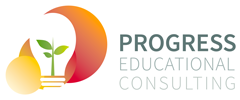TARGET AUDIENCE: SCHOOL LEADERS & LEADERSHIP TEAMS
Identifying, developing and delivering the organisational infrastructure necessary to ensure your evidence-based, high impact Teaching and Learning Platform, and those that engage with it, grow and flourish
Ensuring theory becomes practice – Systems as the foundation for teacher development
We’ve all experienced it; you return from professional learning excited and motivated by what you’ve heard. However, soon after returning to school something happens; you find yourself back in the classroom or office juggling a million things at once, other agendas take over. Unfortunately, the time, collaboration and re-engagement required to allow professional learning to move from theory to how you teach just isn’t there and the chance to innovate is lost. It is unrealistic to expect anything else, unless, we are strategic in the way we support teachers to bring innovation to their practice.
At PROGRESS Educational we have identified and developed the research based Organisational Infrastructure framework that features the systems and structures, that when in place and aligned to school goals, provides teachers with the repeated engagement with professional learning innovation that is necessary to see it become ‘how they teach; their instructional core’. (Click here for an A4 outline of the day to share with staff.)
Timperley’s meta-analysis of how over 90 countries approached teacher development highlights; “ensuring ‘developmental momentum’, through organisational infrastructure that supports professional learning and ongoing inquiry into practice is enabled by clearly defined, resourced and aligned systems and processes” (Teacher Professional learning and development, 2008). Clearly, a school’s infrastructure is significant in the achievement of sustained and improved student learning outcomes, an aspect of education that has been overlooked at a systems level for too time. For this reason, systems have become one of our three school improvement platforms at Progress Educational, driving our work with your school, and underpinning the development of high impact, evidence-based teachers.
“Developing learning cultures is the primary task, with professional learning and appraisal (observations) as enablers, not drivers. Professional development should be designed as a holistic, ongoing formative feedback cycle with continuous collaboration at its centre.” Professor Michael Fullan and Maria Langworthy, Rich Seam: How new pedagogies find deep learning (2014)
“Teachers who are engaged in cycles of effective professional learning take greater responsibility for the learning of all students; they do not dismiss learning difficulties as an inevitable consequence of home or community environment.” (Timperley, 2008, Teacher professional learning and development)
“In recent years, there has been a growing consensus that successful outcomes for school students depend, more than anything else, on what happens inside classrooms. School leadership is important, but mostly because effective leaders create the circumstances in which teachers continue to learn and develop.” (Wiliam, foreward to Exploring effective pedagogy in primary Schools, Siraj (2014)
“Learning is cyclical rather than linear, so teachers need to be able to revisit partially understood ideas as they try them out in their everyday contexts.” (Timperley, 2008, Teacher professional learning and development)
“As principals are inundated with new initiatives and political agendas designed to allegedly improve schools, they cannot lose sight of what really matters in educational reform: their students and staff. In the rush to implement new state and federal guidelines and mandates, don’t lose sight of the people who are most critical to the success of the educational process.” (Quay and Quaglia, 2005, Eight ways to motivate staff)
Leaders will engage in detail with the structures and systems domains identified in our Organisational Infrastructure Framework; Professional Learning, Professional Development Processes, Whole school agreements, Assessment, Intervention and Improvement Planning. Participants are then guided in a process where they reflect on the presence and effectiveness of each within their own school context. This initial scan of your school’s infrastructure will provide direction for further inquiry when you return to your school and inform the development of your Organisational Infrastructure Action Plan. You will also be introduced to several tools designed to support a more comprehensive analysis of the framework on your return to school.
We will conclude the day by engaging with the work of Professor Vivian Robinson as we consider the instructional leadership and transformational leadership styles, the implications they have for your practice, and the manner in which they contribute to your school’s success as you pursue sustained and improved student learning outcomes
This professional learning experience has been successful when you:
- understand the importance of aligned organisational infrastructure if teachers are to transfer professional learning into daily practice
- can define and understand the components of the Organisational Infrastructure Framework
- are now able to utilise the Organisational Infrastructure Framework review tool to determine your system and structure effectiveness
- have developed the beginnings of your Organisational Infrastructure Action Plan
- understand the difference between, and impact, of the two leadership styles and use this to inform your professional development
Have a question for Travis, or need more info? Let’s chat.
Under no obligation, our preference is to spend time with you prior to delivering professional learning for teachers, or tailored leadership guidance, so that the partnership we develop is unique to your school.
When pursuing PROGRESS FOR ALL, All of the time, we believe time spent planning is time well spent.

